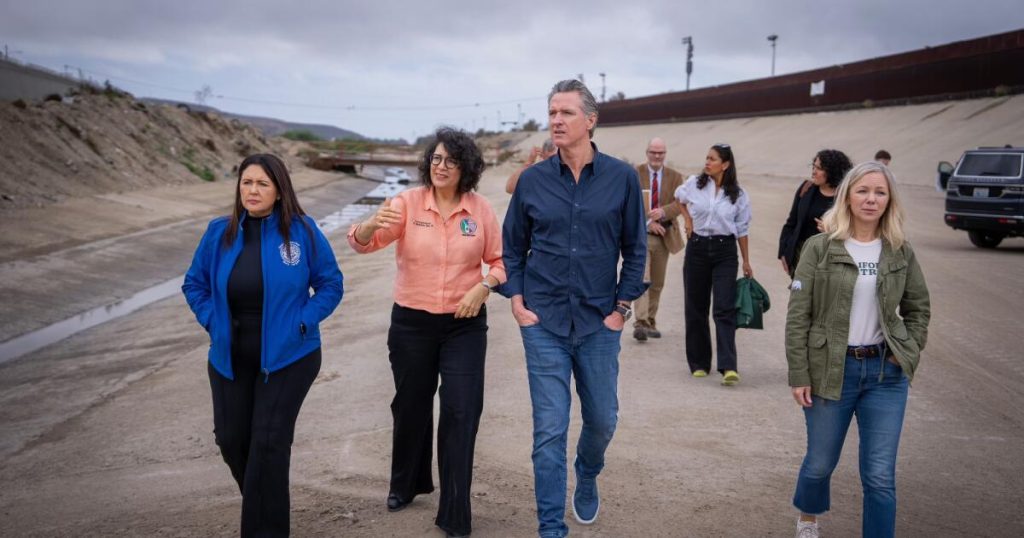
Gov. Gavin Newsom announced Monday that the state has secured millions of dollars in additional funding to address the ongoing Tijuana River sewage crisis that is contaminating San Diego County’s beaches.
The governor said President Biden signed a federal funding bill that allocates $250 million to rehabilitate and expand existing wastewater treatment facilities in San Diego. The facility is one of two that lacks the capacity to handle the billions of gallons of sewage and industrial wastewater flowing from the Tijuana River. .
Untreated sewage spills into California’s coastal waters pose environmental, health, and economic problems for residents on both sides of the U.S.-Mexico border.
Newsom said the money will help rehabilitate and expand the South Bay International Wastewater Treatment Plant, a project already underway but expected to take five years to complete.
Earlier this year, Mexico also broke ground on a new $33 million sewage treatment facility to replace the aging San Antonio de los Buenos facility in Baja, but officials say the plant will only be able to clean hundreds of sewage plants every day. It has released millions of gallons of untreated sewage into the Pacific Ocean, closing the area’s beaches and causing air quality problems due to sewage buildup and organic pollution and decay.
A sign warns of contaminated water in Imperial Beach, California, 2018.
(Gregory Bull/Associated Press)
Officials at Imperial Beach say bad odors and polluted beaches are causing tourist numbers to drop from 2.1 million in 2018 to fewer than 700,000 in 2023. Last month, the Chula Vista City Council declared a local state of emergency in response to the crisis.
The California Coastal Commission said sewage treatment infrastructure on both sides of the border is aging and cannot properly collect and treat the approximately 35 billion to 70 billion gallons of sewage and wastewater that flow out of Tijuana each year.
Local, state and federal officials say deferred maintenance, disinvestment and poor management also contribute to the facility’s poor condition.
“For too long, communities in the Tijuana River Basin have borne the brunt of this transnational pollution crisis,” Newsom said in a written statement. “Today’s funding marks a long-term turning point. We are providing the resources we need to protect public health, restore our coasts, and provide our residents with the clean air and water they deserve. ”
According to the governor’s office, $703 million in federal funds have been allocated so far to address the decades-long crisis. Last year, the Environmental Protection Agency received about $350 million in funding to improve San Diego’s sewage treatment plants.
San Diego County announced in October that it would purchase and distribute $2.7 million worth of state-backed air purifiers to residents.
Since 2019, California has also allocated $35 million in state funds to address pollution in the Tijuana River watershed, including six cleanup and remediation projects.




